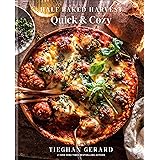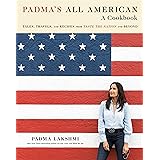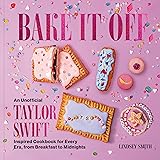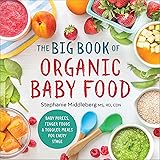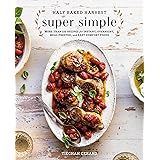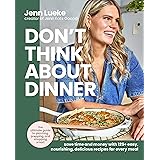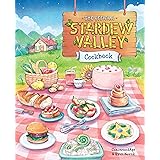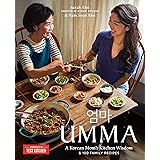Fueling Your Gains: Mastering a High-Protein Vegan Meal Plan for Muscle Building
Embarking on a plant-based journey for muscle growth requires thoughtful planning and strategic food choices. While some believe a vegan diet limits protein intake, it actually presents a unique opportunity to explore a diverse array of nutrient-dense foods. The accompanying video with Dr. Anthony Balduzzi provides an excellent foundation, breaking down essential principles and offering practical meal ideas.
This comprehensive guide delves deeper into optimizing your vegan meal plan for muscle gains, expanding on the video’s insights to help you construct a powerful, protein-rich diet. We explore crucial protein targets, explore a vast landscape of plant-based protein sources, and offer actionable advice for crafting delicious, muscle-building meals throughout your day.
Establishing Your Protein Blueprint: Hitting Optimal Targets for Growth
To effectively build and repair muscle tissue, consistently consuming enough protein is non-negotiable, regardless of your dietary approach. For individuals actively pursuing muscle gains, aiming for approximately 0.75 to 1 gram of protein per pound of body weight daily is a widely accepted guideline. This target typically translates to 100 to 150 grams of protein for many active adults, providing the necessary building blocks for robust muscle development.
Achieving this protein goal on a plant-based diet necessitates a strategic approach, as plant foods often contain a mix of macronutrients rather than being isolated protein sources. Consider your daily intake spread across three to four meals, ensuring each meal contributes around 30 to 50 grams of protein. This consistent distribution, much like a steady rain nourishing the soil, ensures your muscles receive a continuous supply of amino acids for optimal synthesis.
Strategic Plant-Based Protein Sources: Building Your Foundation
The plant kingdom offers an impressive bounty of protein-rich foods, each contributing unique nutritional benefits to your muscle-building diet. Integrating a variety of these sources ensures you acquire a complete spectrum of essential amino acids, which are the fundamental components of protein. Think of these diverse sources as different tools in a builder’s kit, each essential for constructing a strong structure.
Key staples include lentils, black beans, chickpeas, and other legumes, which deliver substantial protein and fiber. Nuts like almonds, walnuts, and pistachios, along with seeds such as hemp, chia, and pumpkin seeds, are concentrated sources of both protein and healthy fats. Fermented soy products, especially tempeh, stand out as excellent options due to their enhanced digestibility and nutrient profile.
Energizing Mornings: High-Protein Vegan Breakfast Ideas
Starting your day with a significant protein boost sets the stage for muscle recovery and growth. The video highlights several fantastic breakfast options, and we can further explore their power. These meals act like the morning sun, providing initial warmth and energy for the day’s tasks.
The Power-Packed Breakfast Smoothie
A high-protein vegan smoothie offers unparalleled convenience and nutritional density. Begin with a high-quality plant-based protein powder, ideally a blend of pea, rice, or hemp proteins to ensure a complete amino acid profile, much like combining different colors to create a richer hue. Dr. Balduzzi recommends one and a half scoops for a substantial protein hit.
Enhance your smoothie with two tablespoons of hemp seeds, one tablespoon of chia seeds, and one to two tablespoons of organic peanut or almond butter for additional protein, healthy fats, and fiber. Almond milk and a handful of wild blueberries complete this blend, creating a nutrient-dense, easily digestible meal. For increased calories crucial for muscle gains, consider adding a drizzle of olive oil, a touch of coconut oil, or simply more nut butter, pushing your calorie count to an impressive 400-500 and protein upwards of 40-50 grams without digestive discomfort.
Savory Tofu Scramble for Sustained Energy
For those who prefer a savory start, a high-protein tofu scramble is an excellent choice. Combine crumbled firm tofu with a medley of vegetables like spinach, bell peppers, and onions, seasoning with turmeric for color and nutritional benefits. Serve this flavorful scramble on a slice or two of sprouted organic bread, such as Ezekiel bread, which remarkably offers 5 grams of protein per slice.
Two slices of Ezekiel bread instantly contribute 10 grams of protein, complementing the 20-25 grams from your tofu scramble. Incorporate sides like sautéed greens, a scoop of hummus, or a handful of chickpeas to reach that impressive 40-gram protein target. This meal offers a satisfying texture and diverse flavors, similar to a symphony of tastes for your palate.
Overnight Oats: Convenience Meets Nutrition
Overnight oats provide a remarkably simple yet effective way to achieve a high-protein vegan breakfast with minimal morning prep. Combine organic rolled oats, which supply complex carbohydrates and inherent protein, with two tablespoons of hemp seeds, two tablespoons of chia seeds, and a tablespoon of peanut butter. Flood the mixture with almond milk and allow it to sit overnight.
By morning, you awaken to a perfectly textured, protein-rich meal ready to fuel your muscles. The hemp seeds are particularly effective in boosting the protein content, making overnight oats a true champion for muscle builders. This concept is akin to a slow-cooker meal, preparing itself while you rest.
Fueling Midday: High-Protein Vegan Lunch Strategies
Maintaining consistent protein intake through lunch is vital for continuous muscle repair and energy. Your lunch should serve as a strong bridge between breakfast and dinner, keeping your energy levels stable. Consider these options to build a robust vegan meal plan for muscle gains.
The Robust Plant-Based Sandwich
Reinvent the classic sandwich using high-protein components. Two slices of Ezekiel bread spread generously with organic peanut or almond butter can create a sandwich with approximately 25 grams of protein. This simple combination, bolstered by the sprouted grain bread, offers quick energy and satiety. Adding a side of sprouts or leftover sautéed green beans can help “nickel and dime” your way to 30 grams of protein or more.
While vegan deli slices exist, prioritizing whole, unprocessed foods is generally healthier. Many processed meat alternatives contain undesirable ingredients like canola oil, soy oil, and processed soy protein. They might taste good, but they often lack the dense nutrition found in natural plant sources, acting more like a fleeting mirage than a deep well of sustenance.
Embracing Fermented Soy: Tempeh’s Versatility
Dr. Balduzzi specifically advocates for fermented soy products like tempeh, a superior choice compared to unfermented soy. Fermentation significantly reduces anti-nutrients, improving digestibility and nutrient absorption. Tempeh’s firm texture and mild, nutty flavor make it incredibly versatile. Slice it, fry it in coconut or avocado oil, and use it as a protein-rich topping for salads or a hearty filling for sandwiches.
Including fermented soy in your vegan meal plan for muscle gains helps mitigate potential concerns about phytoestrogens and digestive issues that some individuals experience with unfermented soy. It’s like refining a raw ingredient to unlock its true potential.
Crafting Nutrient-Dense Buddha Bowls
Buddha bowls represent a fantastic way to combine multiple plant-based protein sources, healthy fats, and complex carbohydrates into one vibrant meal. Start with a base of cooked chickpeas, perhaps seasoned and roasted, or canned beans. Add a root vegetable like sweet potato for complex carbohydrates and a handful of mixed greens for micronutrients. Sprinkle generously with sprouted pumpkin seeds for an extra protein and healthy fat boost. Incorporate avocado slices for healthy fats and a creamy texture, then dress with a simple vinaigrette or your favorite hot sauce. These bowls are a symphony of textures and flavors, easily reaching 500-600 calories, ideal for supporting muscle growth.
A key advantage of Buddha bowls is their flexibility; you can vary ingredients based on seasonal availability and personal preference. The combination of protein, fats, and carbs in one meal simplifies macronutrient tracking, ensuring you meet your energy and protein requirements efficiently. Think of it as a painter’s palette, where all the colors blend harmoniously.
Smart Snacking: Powering Up Between Meals
Strategic snacking plays a crucial role in increasing overall calorie and protein intake, vital for muscle building, especially on a plant-based diet. These small meals can also serve as excellent pre-workout fuel, preventing digestive stress during exercise.
High-Quality Plant-Based Protein Bars
When selecting protein bars, opt for those made with whole, organic ingredients and minimal added sugars. Brands like Garden of Life, GoMacro, or Larabars can be good choices, but always check the label. Aim for bars with less than 10 grams of total sugar, noting that some natural sugars may come from dates or other fruits used for texture. Avoid bars listing cane sugar or corn syrups high on the ingredient list, much like avoiding shortcuts that compromise the quality of a construction project.
These bars offer a convenient way to get quick protein and calories on the go, making them a practical addition to any busy schedule. They provide a quick, concentrated energy source, perfect for bridging the gap between main meals.
Nuts and Fruit: A Classic Power Duo
Nuts are incredibly calorie-dense and protein-rich, making them ideal for increasing your daily intake without consuming large volumes of food. Macadamia nuts, walnuts, and pistachios are particularly healthy choices, providing beneficial fats that support hormonal balance and sustained energy. A half-cup serving of these nuts can deliver significant calories and protein.
Pairing nuts with fresh fruit, such as organic berries, an apple, or a pear, creates a balanced snack. The fruit provides quick carbohydrates and fiber, while the nuts offer sustained energy and satiety. This combination is like two perfectly complementing pieces of a puzzle, each enhancing the other’s value.
Satisfying Evenings: High-Protein Vegan Dinners for Recovery
Dinner is a prime opportunity to load up on protein and nutrients crucial for overnight muscle repair and growth. Exploring diverse plant-based dinner options can keep your meal plan exciting and nutritious, akin to the grand finale of a performance.
Hearty High-Protein Chili
A plant-based chili, loaded with a variety of beans like black beans, kidney beans, and pinto beans, is a cornerstone of a muscle-building vegan diet. While beans contain lectins, anti-nutrients that can cause digestive issues, proper preparation renders them completely safe and beneficial. Soaking beans for at least 5-6 hours or overnight, and then pressure cooking them, effectively deactivates these lectins, making them much easier to digest. This method transforms potential irritants into powerful allies for your gut health and muscle gains.
Chili is inherently versatile; you can incorporate an array of vegetables and spices, making each batch unique. It’s a fantastic meal for meal prepping, allowing you to enjoy protein-packed servings throughout the week.
Quinoa: The Ancient Grain of Muscle Builders
Quinoa, technically a seed but often used like a grain, stands out for its exceptional protein content among plant-based carbohydrate sources. It provides all nine essential amino acids, making it a complete protein. Using quinoa as a base for your dinners, perhaps alongside chili or tempeh, significantly boosts your protein intake. Cooking quinoa in vegetable stock on a rice cooker’s brown rice setting enhances its flavor and simplifies preparation, much like a well-oiled machine operating effortlessly.
Quinoa’s fluffy texture and mild flavor make it an adaptable canvas for various sauces and seasonings, fitting seamlessly into diverse culinary traditions.
Exploring Lentils and Dahl
Indian cuisine offers a treasure trove of high-protein, plant-based options, with lentils and dahl being prime examples. Creating a vegan split pea soup or a spiced lentil dahl provides a delicious and nutrient-dense meal. These dishes are rich in plant-based protein and fiber, promoting satiety and digestive health. Serve dahl alongside quinoa for a truly powerful and flavorful combination, where each component supports the other, creating a rich tapestry of taste.
Lentils are remarkably inexpensive and easy to cook, making them an accessible staple for anyone on a budget-conscious vegan meal plan for muscle gains. Their versatility allows for countless recipes, from soups to stews and even plant-based “meat” loaves.
Beyond Protein: Essential Nutritional Considerations
While protein is paramount for muscle building, other nutrients are equally vital for overall health and performance on a vegan diet. Paying attention to these elements ensures a well-rounded and sustainable plant-based nutrition plan.
The Importance of Dark Green Leafy Vegetables
Don’t overlook the power of dark green leafy vegetables like chard, spinach, and kale. These greens are excellent sources of non-heme iron, a crucial mineral for red blood cell production and oxygen transport, especially important for strenuous exercise. Sautéing rainbow chard with olive oil, garlic, and a squeeze of lemon not only enhances its flavor but also boosts iron absorption due to vitamin C. Think of these greens as the unsung heroes of your diet, quietly providing vital support.
Consistent intake of these nutrient powerhouses prevents iron deficiency, which can compromise energy levels and workout performance. They are essential for a thriving, active body.
Supporting Gut Health with Probiotics
Many individuals transitioning to a plant-based diet experience digestive discomfort due to increased fiber intake, particularly if beans are not prepared correctly. Incorporating probiotic-rich foods is key to maintaining a healthy gut microbiome and ensuring efficient nutrient absorption. Fermented foods like kimchi (fermented cabbage), sauerkraut, and vegan yogurt provide beneficial bacteria that support gastrointestinal function.
Having a couple of tablespoons of kimchi with lunch or dinner can significantly improve digestion, reducing bloating and gas. A healthy gut is the foundation of overall well-being, allowing your body to properly utilize the nutrients you consume for muscle repair and growth, much like a well-tended garden yields the best harvest.
Calorie Density and Enjoyable Treats
For muscle gains, ensuring adequate calorie intake is as crucial as sufficient protein. Plant-based foods are often high in fiber, which can lead to early satiety. Incorporate calorie-dense options like nuts, seeds, avocados, and healthy oils to meet your energy requirements without feeling overly stuffed. Adding a side of fruit to every meal, as Dr. Balduzzi suggests, offers an additional 100+ calories along with vital vitamins and fiber.
Allowing for occasional enjoyable treats, like a square of dark chocolate post-workout or a low-sugar coconut ice cream bar, can prevent feelings of deprivation and enhance the sustainability of your vegan meal plan. These treats, in moderation, offer both psychological satisfaction and additional calories, much like small rewards that keep you motivated on a long journey.
Final Thoughts on Your Vegan Muscle Building Plan
Building muscle on a vegan meal plan is not only achievable but can also be incredibly rewarding and healthful. By strategically focusing on a diverse range of high-protein plant-based foods, understanding your protein targets, and paying attention to overall nutritional density, you can construct a diet that fully supports your fitness aspirations. Prioritize whole, unprocessed foods, properly prepare legumes, and support your gut health to ensure maximum nutrient absorption and comfort. Whether you use a high-quality plant-based protein powder like Dr. Balduzzi’s Super Fuel or rely solely on whole foods, dedication to these principles will yield significant muscle gains on your plant-based journey.


